- Top 10 DevOps Tools for Continuous Integration
- Top 10 Devops Tools
- Repository Management Tools
- 10 Tools For Effective DevOps Collaboration
- Top 12 Open Source DevOps Build Tools
- Configuration Management Tools in DevOps
- Agile Vs DevOps
- Chef DevOps Interview Questions
- What is Continuous Integration in DevOps?
- Insights of DevOps Architect
- DevOps Automation: How is it Carried Out?
- Introduction To DevOps Docker
- DevOps For Dummies
- DevOps Interview Questions
- 13 DevOps Testing Tools For DevOps Professionals
- DevOps Tutorial For Beginners: A Step-by-Step Guide To Learn DevOps
- Cacti Graphing And Monitoring
- RANCID Tool Keeps Config Files Clean
- How To Enable LLDP on Linux Servers for Link Discovery
- How to set up a modern web stack in Ubuntu
- Useful Iperf Commands for Network Troubleshooting
- Migration of MongoDB to DynamoDB
- MongoDB and Tree Structures
- Multihost SSH Wrapper
- DevOps Tools for Infrastructure Automation
- Introduction To Azure DevOps
- Introduction To DevOps Tools
- List of DevOps Monitoring Tools
- The Ultimate List of DevOps Deployment Tools
- Top 10 Open Source Containerization DevOps Tools
- Reasons for the Rise of DevOps
- Role Of a DevOps Engineer
- DevOps Security Tools
- Some Common Myths about DevOps
- Top 10 Devops tools in cloud
- Release Management Tools
- Top 10 SCM Tools
- Logging DevOps Tools
- DevOps And Its Significance
- DevSecOps Interview Questions
- Ansible vs Chef
- DevSecOps Tutorial
- What is Site Reliability Engineering - SRE Tools
- Site Reliability Engineer(SRE) Interview Questions
- What is DataOps?
- DevOps Vs SysOps
- DevOps Engineer Job Description
- Azure DevOps Jira Integration
- What is Pipeline in DevOps?
- SonarQube Azure DevOps
- Azure DevOps CI/CD
DevOps Tools and Frameworks and how they are orchestrated?
Today, we are completely into the IT sector and this industry turns all over programmers, developers, and many others. Every second there happens a million lines of code development, update, analysis, and test. All these phases form as one and build a software development cycle.
And these software development cycles are addressed to deliver high-quality software reaching to customer prospects, execution within the stipulated time, and cost estimates. In the context of this, here comes the picture of DevOps Tools and Frameworks.
Want to enhance your skills to become a master in DevOps Methodology, enroll in our DevOps Training
Let’s be clear about DevOps Tools.
What exactly DevOps Tools mean?
DevOps Tools are included with the tools of test and build systems, software version control, application deployment, configuration management, and monitoring. These tools are unavoidable in the IT sector as they assist in continuous integration, delivery, and deployment.
Bringing a whole new perspective to software development, DevOps Tools today are mostly employed in many industries and applications.
Now, we shall delve into the concept of knowing which DevOps tools are best and how do they perform.
In This Devops Tools and Framework, You Will Learn
Best DevOps Tools to Learn
1) Gradle

From the time of DevOps invention in 2009, Gradle observes constant enhancement and gains more popularity. Gradle is considered one of the fabulous tools allowing developers to compose their code in C, Java, Python, and other languages.
Well, one might be wondering what is the best part of Gradle that makes it superior in DevOps?
The best thing about Gradle is its incremental builds, saving an extensive amount of compilation time. The performance of Gradle is almost 100 times quicker than Maven. Gradle goes with quicker operations because of its incrementality, build cache, and daemon.
On the whole, Gradle comes up with quicker shipping and numerous configuration abilities.
[ Related Article: Gradle Tutorialspoint ]
2) Git
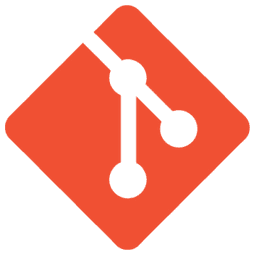
You might come across multiple version control tools such as ClearCase, RTC, and SVN. But these all might stay back in few aspects to fit well with your requirements.
Hitting the spots of your requirements Git is the most prominent version control tool being in implementation by many organizations. It is the distributed source code management tool and gains the attraction of many teams and open source contributors.
The option of flexibility in Git allows you to switch between multiple versions when required. Integration of Git with DevOps workflow requires the support of host repositories where people can push their code. GitHub and Bitbucket are the most extrusive repo hosting services being employed by many.
Exceptional integrations in Bitbucket and GitHub let them be on the list of best DevOps Tools.
[ Related Article: Best Git Tutorial ]
3) Jenkins
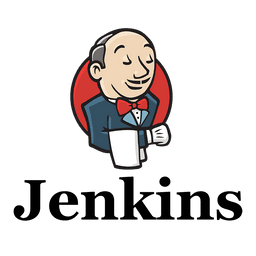
Jenkins is the publicly accessible automation tool that is being in implementation by many tech giants. Jenkins serves as an assistant for multiple projects in automating, building, and deployment of code.
One of the things that stick out Jenkins is its massive plugin ecosystem. At present, Jenkins has the capability to deliver nearly 1,000 plugins. And this extendibility lets this tool assimilate with almost all the DevOps tools ranging from Docker to Puppet.
Features that allow Jenkins to be the best tool are:
- Streamlined installation procedure
- Easy setup and configuration through the web interface
- Has to support for build pipelines.
- Iteration and deployment of fresh code can be done in a quick manner
- Performs as a constant delivery center for multiple projects
[ Related Article: Tutorial Jenkins ]
4) Docker
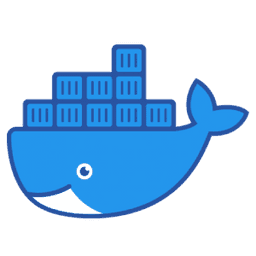
Get your apps to build, manage and secure at any place. The concept of containerization gains the sight of many because of Docker, as it goes with distributed development and systematizes the deployment of applications. Docker allows for the isolation of applications as containers thus enhancing the portability and security of applications.
And the foremost thing that Docker is considered as one of the best is its dependency management. Dependency Management moves up with the approach of assimilating the whole dependencies within the application’s container and delivered as a single unit. This flexibility allows for the execution of the application on any platform in a more streamlined manner.
[ Related Article: Docker How it Works ]
5) Kubernetes

Kubernetes, a popular open-source platform enhancing the performance of containerization. Resolving the complexity involved in handling many containers, Kubernetes is in its continuous development and reaches the superior phase of popularity.
The suppleness involved in Kubernetes shows the option to deploy containerized applications to a single cluster of computers.
6) Puppet Enterprise
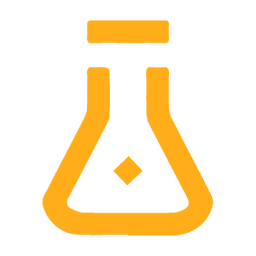
This tool is described as the configuration management platform. It operates to govern infrastructure as code. As because infrastructure management is performed, there comes quick and protected software delivery. This tool even offers the development team an open-source tool for minor projects. Even, this tool provides additional features to manage larger projects and they are:
- Role-dependent access control
- Node administration
- Real-time drafts
7) Ansible
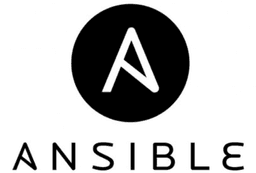
Ansible performs has similar functionality as that of Chef and Puppet. It is even termed a configuration management tool. This tool provides the feature to organize infrastructure and automate the process of deployment in a streamlined manner. The features that drove this tool under popularity are suppleness and simplicity. It has a similar IAC method as that of Puppet.
While the other prominent feature of Ansible is agentless architecture. Ansible is also considered a more protected and easily accessible solution for configuration governance automation.
[ Related Article: Ansible for Beginners ]
8) Nagios
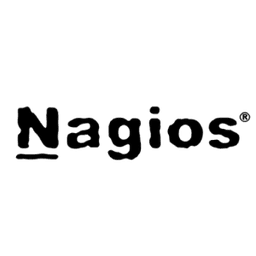
So, Nagios is another open-source and easily accessible DevOps tool. Through this, infrastructure management seems to be absolutely easy that shows the way for solving problems in an easy approach. Nagios allows you to maintain event records, failures, and outages too. As because of its extensive plugin ecosystem, Nagios stands at a peak position than that of other tools.
Further, Nagios provides other free monitoring solutions and they are of Nagios Core, Nagios XI, Nagios Fusion, and Nagios Log Server.
With all these features, Nagios is considered the best DevOps monitoring framework.
9) Raygun

This DevOps tool assists you to monitor performance-related problems and follow them again to the actual line of function, code, or API request. Raygun tool even synchronizes well with Raygun’s error management framework.
In addition, Raygun APM helps in the way of notifying regarding the issues.
So, in this world of DevOps, these are the few tools implemented by many organizations. Apart from these, there are many tools that are in availability and we suggest choosing the one that best suits all your requirements.
Next, we shall proceed with the concept of “DevOps Frameworks”
A Clear Description of DevOps Frameworks
DevOps is defined as the process framework making sure of enhanced collaboration between Operations and Development teams. A perfect collaboration between the teams shows the path for faster deployment of code and in a more systemized and repeatable manner.
The process framework aims to lay a foundation for the entire software process by finding a group of framework activities that are suitable for all software projects without considering the size and complexity. It also comprises a set of umbrella activities implemented across the entire software process. Some of the widely used process frameworks are Scrum, Sprint, and safe.
DevOps = Development + Operations
From the stage to development to delivery, the target of the DevOps framework is to enhance collaboration through the automation of the delivery pipeline. Through this approach, the DevOps framework delivers features such as:
- Enhancement in the frequency and deployment quality
- Decreases the scope of happening continuous failures
- Increases Mean Time to Recovery
- Enhance solution quality and fix the issue in a short span of time
The extensive framework behind DevOps facilitates to augment the delivery of DevOps services and applications in a faster way. Moving up with all these approaches DevOps Framework is now in implementation by many organizations and thus got exposed as the best competitor in the market. DevOps Frameworks even hold the ability to automate whole processes initially from build to the deployment of the product or application.
What’s the end of the line in the implementation of DevOps Tools and Frameworks?
Continuous enhancements and progressions in this platform let everyone implement their services and activities. And both the Operations and Development teams can go with streamlined operations.
 On-Job Support Service
On-Job Support Service
Online Work Support for your on-job roles.

Our work-support plans provide precise options as per your project tasks. Whether you are a newbie or an experienced professional seeking assistance in completing project tasks, we are here with the following plans to meet your custom needs:
- Pay Per Hour
- Pay Per Week
- Monthly
| Name | Dates | |
|---|---|---|
| DevOps Training | Feb 14 to Mar 01 | View Details |
| DevOps Training | Feb 17 to Mar 04 | View Details |
| DevOps Training | Feb 21 to Mar 08 | View Details |
| DevOps Training | Feb 24 to Mar 11 | View Details |

As a Senior Writer for Mindmajix, Saikumar has a great understanding of today’s data-driven environment, which includes key aspects such as Business Intelligence and data management. He manages the task of creating great content in the areas of Programming, Microsoft Power BI, Tableau, Oracle BI, Cognos, and Alteryx. Connect with him on LinkedIn and Twitter.
















